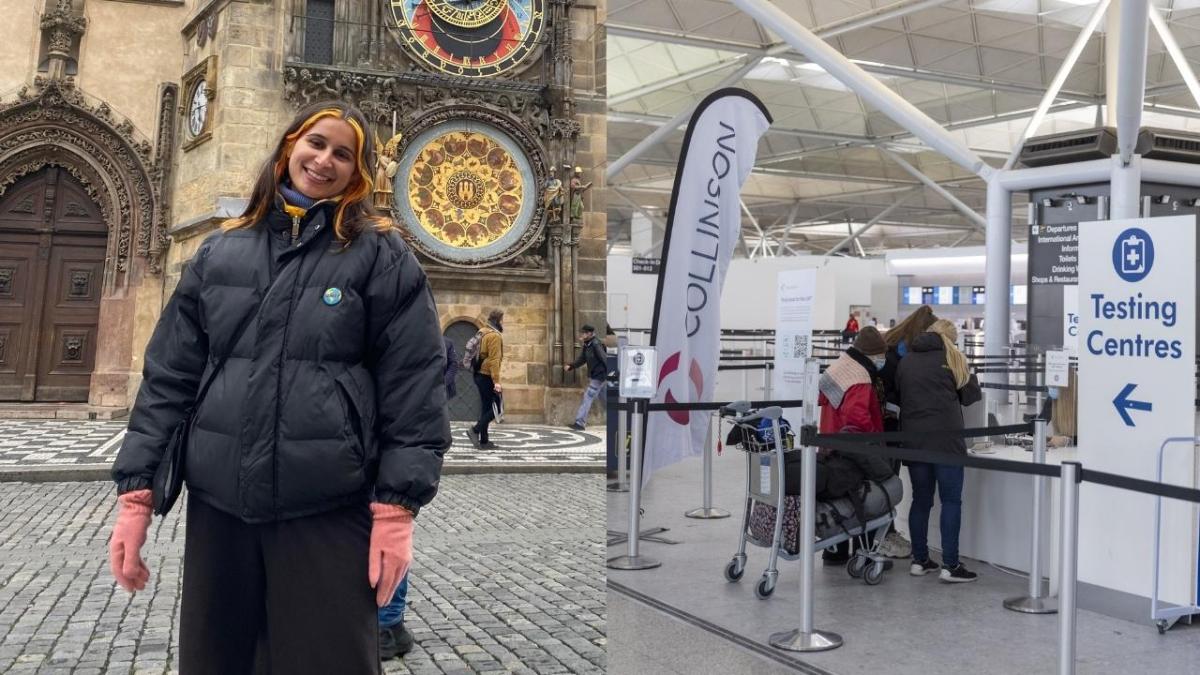
Last month, I started travelling overseas for the first time in this new post-COVID world. I booked a one-way ticket to Germany with the intention of solo-trekking around Europe for three months before settling in the UK on a working visa. I was equally terrified and excited, because while a Eurotrip is a rite of passage for any basic 20-something-girl, doing it after two years of an international travel ban was pretty daunting.
Leading up to the trip I was filled with anxiety thinking about what travelling would look like post-lockdowns. How many forms would need to fill out? What would getting on a long-haul flight after two years feel like? Would I be able to get back into Australia again if things spiral out of control?
Despite all the anxiety, travelling is 100 per cent worth it. But it’s not as simple as it used to be, and it’s important to keep that in mind before jetting off.
Where are you travelling?
Every country has different rules for tourists. Some require a negative COVID test, some require you to quarantine and some just need you to be vaccinated.
For example, in Germany (where I landed), you need to provide an international vaccination passport at the airport. If you haven’t been vaccinated, you can either provide a negative COVID test or prove that you’ve had a positive COVID at least 28 days and at most 90 days ago. I wouldn’t recommend not being vaccinated though, as most bars/cafes/restaurants require proof of vaccination.
An international version of your vaccination certificate is available on your Medicare Express app, as well as on MyGov. If you need a refresher on how to access your vaccination certificate, you can read P.TV’s guide on it here.
The majority of this information can be found on the Smart Traveler website or other useful websites like IATA Travel Centre can also help.
How long do you plan on staying for?
If the country you’re going to requires you to quarantine, that will obviously need to be factored into the length of time you’re travelling for.
If you’ve only got two weeks of leave, then it’s probably not worth travelling somewhere that would require you to quarantine for two weeks if you catch COVID.
Forms to fill out before the airport
You will 100 per cent need an International COVID-19 Vaccination Certificate before heading to the airport, so make sure that is ready to go beforehand.
Some airlines require you to fill out a COVID declaration form before boarding the plane, so it’s always good to double check that with your airline. Your airline will most likely send this form to you in an email, so make sure to keep an eye out.
Some countries also require you to have a negative international COVID test before travelling. For example, in India, passengers must have a printed negative PCR test result taken at least 72 hours before departure and must also complete a self-declaration form. Again, double check the Smart Traveller and IATA websites for the specific COVID rules at your destination.
The airport
Give yourself plenty of time at the airport in case anything goes wrong. Most airports recommend playing by the three-hour rule, which was plenty of time in my case. But if you want to be extra cautious, go earlier and have a mini holiday in the airport like Kath and Kel in this iconic scene.
The plane
Unfortunately, you need to wear a mask the ENTIRE flight, aside from when you’re eating/drinking. A few hours of wearing a mask is doable, but a 14-hour flight is truly something else.
I have very sensitive skin, so my tip is to buy a silk mask and wear that under a regular mask. The silk masks do nothing on their own, but under a regular mask they act as a nice barrier that isn’t so abrasive on the skin.
I also recommend bringing some baby wipes or micellar water with cotton pads, to wipe any excess dirt/oil on your face. Oh, and moisturising is a non-negotiable if you don’t want dry skin. If you’re acne prone, I’d also recommend buying a travel size container of Paula’s Choice BHA liquid or any other salicylic acid to apply on the areas you wear a mask.
Arriving at your destination
Once you’re out of the airport and in your destination country there will be different sets of COVID rules depending on where you’re going.
Mask rules vary from country to country, but something I found really interesting is that everyone in Europe wears FFP2 masks. Some places won’t even let you wear a regular surgical mask. These masks are like an N95/surgical mask hybrid. I actually prefer them, as they sit very securely on your face. If you’ve been blessed with a big nose like me, you don’t have to worry about your nose playing peak-a-boo every time you speak to someone because this mask doesn’t budge easily.
Another thing to be aware of is that some cafes/restaurants/venues require you to be triple-jabbed, so I’d recommend getting your booster two weeks before travelling (if you don’t already have it).
More restrictions are set to relax, but while I was in Germany you had to provide a negative COVID test AND proof of three vaccinations before entering any nightclub. There are pop up testing sites everywhere and you get the result in 15 minutes but bear this in mind before waiting in line for hours at Berghain.
Coming back to Australia
If you plan on coming back to Australia, you will need to provide a negative COVID test before reentering. You may also need to quarantine depending on the state or territory you’ll be flying into. All that information is available on each state’s official government website.
If you’re arriving into Australia by air, you will also need to complete a Digital Passenger Declaration and can only be submitted within 72 hours before departure.
Aside from all the formalities you need to remember, one thing that I’ve noticed since travelling overseas is how much people have missed Australians. I’ve had multiple people say that they haven’t spoken to any Australians in years because of COVID. But I imagine it won’t be long until the novelty wears off and people get sick of seeing Aussies getting blind drunk in Bali while wearing an unflattering Bintang singlet.
It’s been a long time since many of us have been able to travel internationally, so it’s perfectly normal to feel stressed or nervous about it. Remember to put your mental health first and that there’s no need to rush into international travelling if it feels too overwhelming.
From my personal experience though, the anxiety melted away as soon as I landed at the airport. I was just excited to finally be able to leave the country again and begin travelling the post-COVID world.







